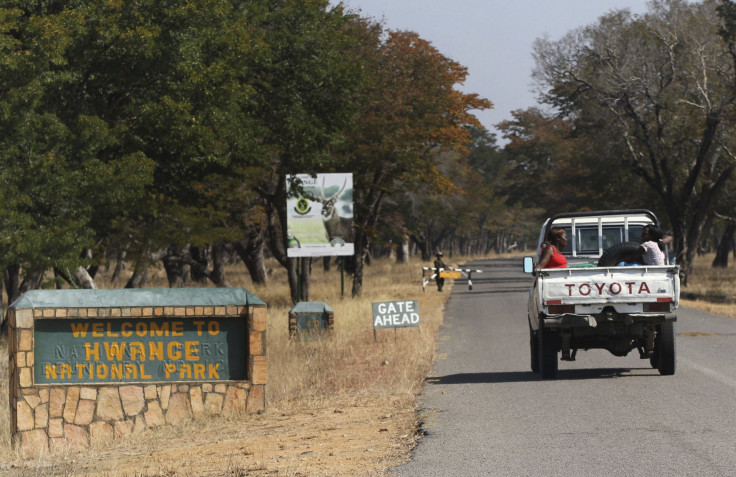Cecil Hunt Fallout: Delta Air Lines, American Airlines And United Airlines Ban Transport Of Hunting Trophies

Delta Airlines Inc., American Airlines Group Inc. and United Airlines Inc. announced that they have banned the shipment of big-game trophies. The move comes after a popular lion named Cecil was illegally killed by a Minnesota-based dentist Walter James Palmer in Zimbabwe’s Hwange National Park last month. However, the companies have not given an official statement on the reason behind the announcements.
“Effective immediately, Delta will officially ban shipment of all lion, leopard, elephant, rhinoceros and buffalo trophies worldwide as freight,” Morgan Durrant, a spokesman for Delta Air Lines, said Monday, according to the New York Times. “Prior to this ban, Delta’s strict acceptance policy called for absolute compliance with all government regulations regarding protected species. Delta will also review acceptance policies of other hunting trophies with appropriate government agencies and other organizations supporting legal shipments."
American Airlines made the announced through its official Twitter account Tuesday, while United spokesman Charles Hobart reportedly said: "We felt it made sense to do so."
The decision of the three American airlines comes soon after international carriers like Air France, KLM, Iberia, IAG Cargo, Singapore Airlines Ltd. and Qantas Airways Ltd. hinted last week that they would ban the transportation of trophy-hunting kills, Paul Ferris, the campaign director at SumOfUs.org, a consumer-based petition agency in Brooklyn, said, according to the Times. A similar ban was also initiated by South African Airways Ltd. in April, following which Emirates, Deutsche Lufthansa AG and British Airways PLC joined in.
Delta Air Lines, which flies to several African cities, was the subject of an online petition to ban similar shipments, BBC reported. In comparison, American Airlines flies to only eight sub-Saharan cities.
Effective immediately, we will no longer transport buffalo, elephant, leopard, lion or rhino trophies.
— American Airlines (@AmericanAir) August 4, 2015About 15,000 American tourists visit Africa on hunting safaris annually, the Times reported, citing Conservation Force, a Louisiana-based nonprofit group that advocates responsible hunting. Currently, 11 African countries issue lion-hunting permits, including Zimbabwe, South Africa, Namibia and Tanzania. Of these, South Africa’s hunting industry is the biggest and estimated to be worth $675 million, the Times reported, citing the Professional Hunters Association. The fees to hunt lions can reportedly reach up to $55,000, the organization added.
Zimbabwean authorities on Friday reportedly demanded the U.S. to extradite Palmer, who allegedly paid $50,000 for the hunt early July.
Meanwhile, Idaho-based Sabrina Corgatelli, who began to post pictures of her kills on Facebook immediately after reports of Cecil's killing emerged, appeared on NBC's Today show to defend her actions, according to reports Tuesday.
Corgatelli said that she could not be held accountable for the killing because it was not illegal. "Everything I've done here is legal, so how can you fault somebody because of their hobbies?" Corgatelli said, according to Mirror, adding: "Everybody just thinks we're cold-hearted killers, and it's not that.
Corgatelli had posted pictures of herself with corpses of giraffe, warthog, kudu and impala, the Telegraph reported. “There is a connection with the animal, and just because we hunt them doesn't mean we don't have a respect for them,” Corgatelli reportedly said on the show, adding that they are “very dangerous animals” and “could hurt you seriously very quickly."
© Copyright IBTimes 2024. All rights reserved.





















